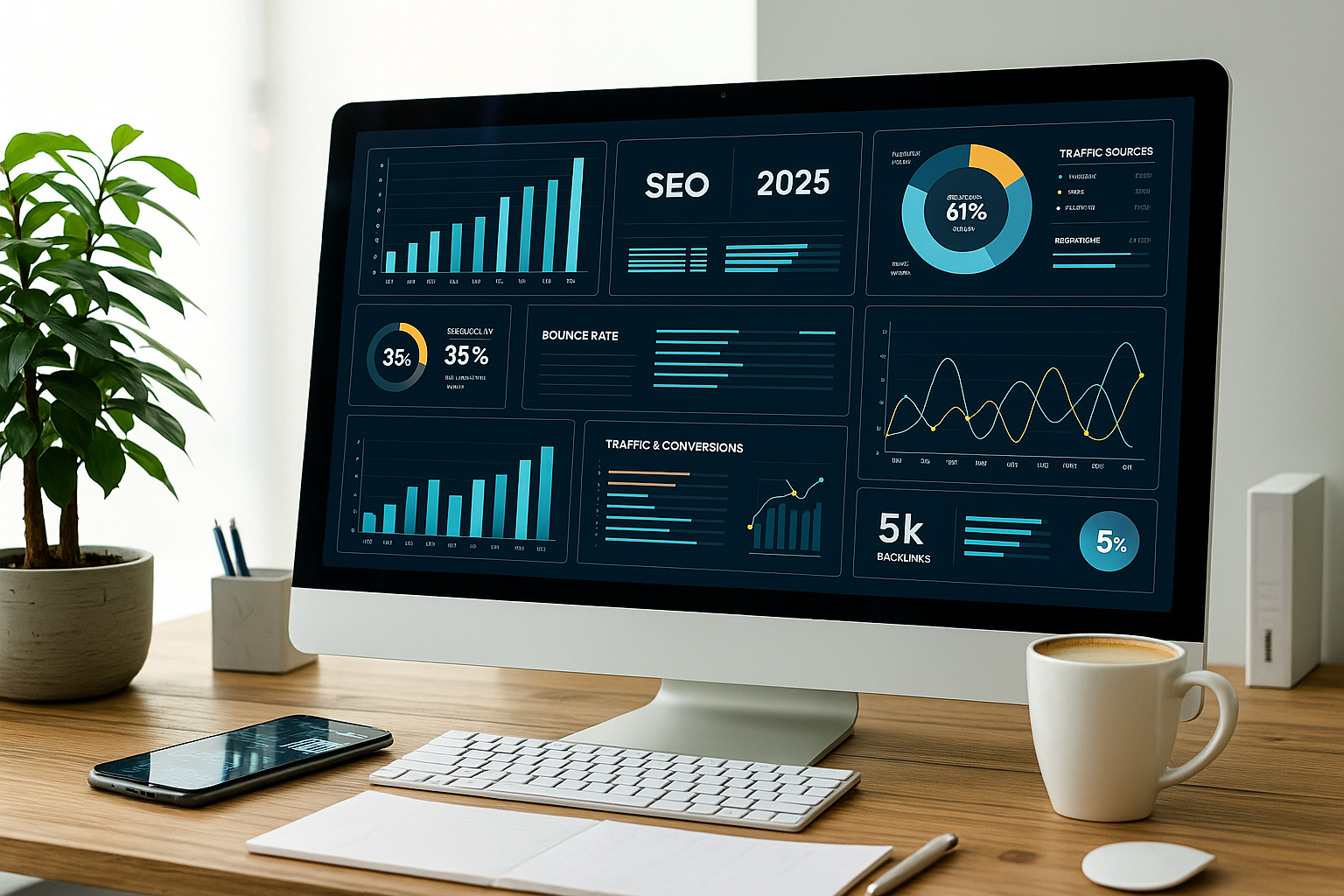On-Page Optimization in 2025: Navigating the New SEO Landscape
On-page optimization has evolved as search engines refine algorithms and user expectations shift. In 2025, the focus extends beyond traditional tactics like keyword stuffing and basic meta tags, emphasizing content quality, user experience, and technical accuracy. Artificial intelligence tools have transformed keyword selection and integration, making it essential to align every webpage element with the specific intent behind a user’s search. Optimizing a page requires balancing engaging, relevant content with technical factors such as URL structure, internal linking, and schema markup to support discoverability and clarity.

Insights from Search Engine Land emphasize a user-centric mindset, where decisions—from image optimization to mobile responsiveness and page speed—prioritize the visitor’s experience. “Understanding what users truly want when they type a query is the foundation of effective on-page SEO,” the article states. Matching search intent precisely improves rankings and fosters deeper engagement and trust. SEO professionals must integrate these elements thoughtfully, ensuring each page serves its purpose while meeting search engine standards.
Understanding On-Page Optimization in 2025
On-page optimization centers on blending content relevance with technical accuracy to address the needs behind each search query. The approach has shifted from inserting keywords to crafting content that resonates with user intent, supported by a structure search engines can interpret easily. Every page element—from headings and meta descriptions to images and internal links—must work together to provide clarity and value. Keyword usage now focuses on context and natural language rather than exact matches, reflecting how AI-driven algorithms assess quality and relevance.
Technical components enhance the user journey rather than merely satisfying search engine requirements. URL structures are clean and descriptive, helping users and crawlers understand the page’s focus quickly. Internal linking guides visitors through related content meaningfully, improving engagement and reducing bounce rates. Image optimization includes descriptive alt text and context that support accessibility and search visibility.
Mobile-friendliness and page speed remain significant ranking factors, as users expect fast-loading pages that adapt smoothly to various devices. Schema markup has become more sophisticated, enabling search engines to interpret content nuances and present rich results that attract clicks. These technical details, combined with a user-first approach, create a foundation where search engines confidently deliver pages that satisfy both algorithms and human expectations.
Artificial intelligence influences content creation by assisting in topic identification, keyword placement, and draft generation aligned with search intent. However, human insight remains vital to ensure authenticity and depth. As noted, successful optimization in 2025 focuses on genuinely meeting the needs of those seeking information, products, or services online.
Mastering On-Page Optimization Techniques for 2025
Effective on-page optimization integrates content precision with technical finesse, focusing on the user’s journey. Keyword density has given way to understanding search intent, shaping every page element. Content should be clear and relevant, using language that mirrors how users naturally express needs. Titles, headers, and descriptions must communicate value without jargon or forced keywords, encouraging deep engagement rather than superficial skimming.
Technical SEO supports this user-first mindset. Clean URLs reflect the page’s topic, helping visitors and search engines grasp the subject quickly. Internal linking guides users through related information organically, enhancing navigation without overwhelming the page. Image optimization involves meaningful alt text and context to improve accessibility and reinforce the page’s theme. Mobile responsiveness and fast loading times directly impact user interaction and search rankings.
Schema markup clarifies page elements—from product details to event information—allowing search engines to present content in rich formats that attract attention. AI tools assist in content creation and optimization by identifying relevant topics and suggesting keyword placements aligned with user intent. Despite these advances, human insight ensures content remains authentic and reflects a genuine understanding of user needs rather than merely catering to algorithms.
Frequently Asked Questions About On-Page Optimization in 2025
How has keyword usage changed with AI-driven search algorithms?
Focus has shifted from exact keyword matches to understanding user intent and naturally incorporating relevant terms. Keywords act as thematic guides, with search engines evaluating context, synonyms, and related concepts to determine relevance. Content creators should prioritize clarity and meaningful language aligned with user needs.
What is the role of technical elements like URL structure, internal linking, and schema markup?
These elements enhance user experience rather than just fulfilling SEO checkboxes. Clean, descriptive URLs help visitors anticipate content. Thoughtful internal linking encourages exploration without clutter. Schema markup enables search engines to understand nuanced information such as product details or event dates, improving search result presentation and click-through rates.
Why do page speed and mobile optimization remain important?
Users expect fast-loading pages that display correctly on any device. Search engines reward sites meeting these expectations. Optimizing images with descriptive alt text supports accessibility and reinforces the page’s topic.
How much of content creation can AI automate?
AI can generate drafts and suggest keyword placements, but human insight is essential to maintain authenticity, engagement, and alignment with audience needs.
A User-Centered Approach to On-Page SEO in 2025
Mastering on-page optimization involves blending thoughtful content creation with precise technical execution, centered on understanding and fulfilling user intent. Success depends on delivering clear, relevant, and engaging information supported by clean URLs, strategic internal links, and advanced schema markup. AI tools enhance efficiency and insight, but the human element ensures authenticity and depth. Focusing on user experience—from fast loading times and mobile responsiveness to meaningful image optimization—helps create pages that rank well, build trust, and encourage meaningful engagement.
For more insights, read the original article on Search Engine Land. As the article states, “Understanding what users truly want when they type a query is the foundation of effective on-page SEO.” — Search Engine Land













.png)

